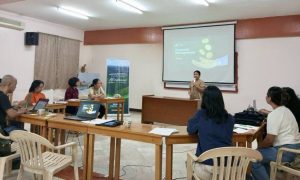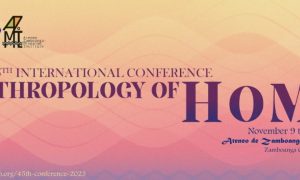Manila, Philippines — Mindanao Climate Justice (MCJ) joined international scholars and activists at the 2025 Co²libri Spring School to raise alarm over the escalating threats to Indigenous education and academic freedom in the Philippines. Held at the University of the Philippines Diliman, the week-long event convened participants from across the Global South to reflect on decolonization, community-driven learning models, and the repression of grassroots education.
Themed “Reimagining the University: Confronting Coloniality, Safeguarding Academic Freedom, Nurturing Alternative Paths of Learning,” the Spring School is part of the Berlin-based Co²libri project—a transregional research initiative amplifying marginalized voices and promoting plural knowledge systems beyond Western academic norms.
Indigenous Schools Under Threat
In a powerful plenary panel titled “Nurturing Alternative Paths and Spaces of Learning,” MCJ’s Victoria Nolasco, alongside sociologist Arnold Alamon and scholar Ramon Guillermo, shed light on the systematic closure of Lumad schools—community-run Indigenous learning centers in Mindanao—and the broader criminalization of Indigenous education. 
Nolasco, Executive Director of a network of schools serving Indigenous children in Mindanao, shared her personal journey from environmental activism to Lumad education advocacy. Drawing from her speech, she emphasized that Lumad schools “were not just about literacy—they were built to equip Indigenous youth with the knowledge to defend their ancestral land, culture, and future.”
“The closure of Lumad schools is not just an attack on education—it is an attack on Indigenous self-determination and environmental defense,” Nolasco stated. She highlighted how red-tagging, militarization, and fabricated charges—such as those leveled against the Talaingod 13, including herself—serve to silence Indigenous voices and dismantle community resistance.
Alamon echoed this sentiment, framing the Talaingod 13 case as emblematic of a broader strategy of repression against Indigenous educators. Guillermo, meanwhile, underscored the importance of alternative education models that confront Eurocentric epistemologies and reclaim academic spaces for historically excluded communities.
 Linking Education and Climate Justice
Linking Education and Climate Justice
MCJ’s participation also emphasized the deep ties between climate justice and Indigenous learning. Lumad schools have long played a crucial role in teaching sustainable land stewardship, preserving biodiversity, and resisting ecological destruction. Their dismantling, advocates argue, leaves Indigenous communities more vulnerable to land-grabbing, extractivism, and displacement.
“Even if the schools have been closed, their knowledge and victories must survive,” Nolasco affirmed, calling for solidarity, support for displaced educators, and the incubation of new learning models such as Bakwit Schools, which serve Lumad youth in evacuation sites.

A Global Call to Action
The Spring School concluded with a resounding call for academic institutions to take action in defense of Indigenous education, academic freedom, and climate justice. Participants reaffirmed that education is not only a fundamental right—it is a crucial site of resistance and survival in the face of ecological collapse and systemic oppression.
MCJ echoes these calls and urges fellow advocates, educators, and institutions to stand in solidarity with Indigenous communities on the frontlines of environmental and educational justice.

A full Academic Solidarity Statement, co-signed by Co2libre scholars and participants, will be released in a separate post.



